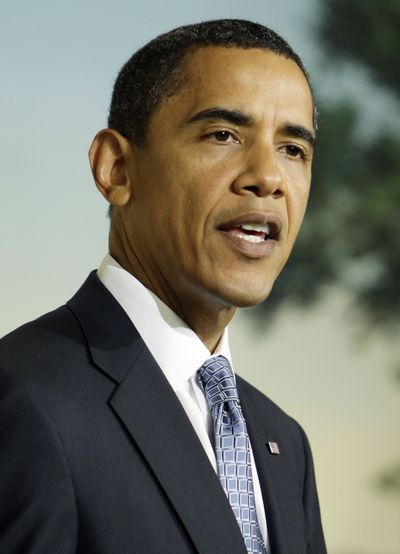House panel settles on health bill
Key committee clears health reform for vote

WASHINGTON – President Barack Obama’s ambitious plan to overhaul the U.S. health care system got a major boost when a pivotal House committee passed a compromise bill Friday night, clearing the way for a floor vote this fall.
The bill was approved, 31 to 28, with five Democrats and all the Republicans on the Energy and Commerce Committee voting against it. Despite the defections, liberal and conservative Democrats were able to come together to break the deadlock that had stalled the bill for weeks.
“We are a diverse caucus with many points of view,” said Rep. Henry A. Waxman, D-Calif., the committee chairman. “We’ve agreed we need to pull together.”
To reach agreement, Waxman earlier this week had accepted conservative lawmakers’ demands to limit the bill’s price tag to $1 trillion over 10 years, allow more small businesses to be exempt from the employer-provided insurance mandate and reduce the number of low-income people who would qualify for subsidized coverage.
But those changes provoked a backlash among liberals. To win them back, he crafted a compromise that would restore low-income subsidies. The committee also added a major provision that would limit premium increases that can be imposed by insurers, and another that would allow the government to negotiate pharmaceutical prices under Medicare’s prescription drug program – a goal long sought by liberals as a way to lower drug costs. The idea was bitterly opposed by Republicans when the program was established in 2003, as critics questioned whether the government would really secure drug discounts.
The bill is designed to provide insurance for the estimated 47 million people in the U.S. who currently go without it, curb health care costs and make it harder for companies to deny coverage or increase premiums.
“We have a historic opportunity to transform our health care system,” Rep. Mike Ross, D-Ark., a leader of the panel’s conservative faction, said ahead of the vote.
But Republicans said that despite changes made to address conservative Democrats’ concerns, the legislation remained a costly, intrusive expansion of government power over medical care. Conservatives did little more than “pick the color of the lipstick on this pig,” said Rep. Mike Rogers, R-Mich.
The vote came just as House members prepared to leave town for a month- long recess.
Now Democratic leaders are asking lawmakers to fan out around the country to help Obama sell the plan. They will, among other things, try to counter efforts to portray the bill as a government takeover of medicine and to convince middle-class people that the plan has benefits for those who already have insurance.
Every House member was given a card summarizing details of the $1 trillion bill – including new insurance subsidies for the poor, tax credits for small businesses that provide coverage for their workers and expanded prescription drug coverage for the elderly. The legislation also broadens Medicaid, the federal-state health care program, to cover more low-income people. Middle-class workers would receive new subsidies to pay health insurance premiums. And government-sponsored insurance would be available as an alternative to private plans.
A key part of the Democrats’ strategy, worked out in coordination with the White House, will be to demonize insurance companies for opposing a bill that has been backed by a wide array of health and consumer groups. House Speaker Nancy Pelosi predicted the industry would conduct a “shock and awe” campaign in the coming weeks to block the bill.
Critics worry that the federally run insurance option would undercut private insurers through cut-rate premiums, putting the health system on a path to being dominated by the government. But when Republicans on the House panel offered an amendment to drop the public option, the committee rejected it.
Before approving the bill, however, lawmakers defied Waxman and delivered a major victory for the drug industry by voting to give 12 years of market protection to advanced new drugs to combat major diseases like cancer and Parkinson’s. Opponents, including the White House, had sought to have generic versions of such drugs come to market faster.
Energy and Commerce is the third and final House committee to have a hand in shaping the health care legislation before it goes to the full House. Versions approved by other panels have included a surtax on wealthy people to help pay for the program and a requirement that most employers provide health insurance for their workers.
Obama had called for action on a health care overhaul before the August recess, but Congress is moving more slowly. In the Senate, a key committee has not reached agreement on its version of the bill.
Still, Friday’s House committee vote gives a much-needed shot of momentum to the legislation.